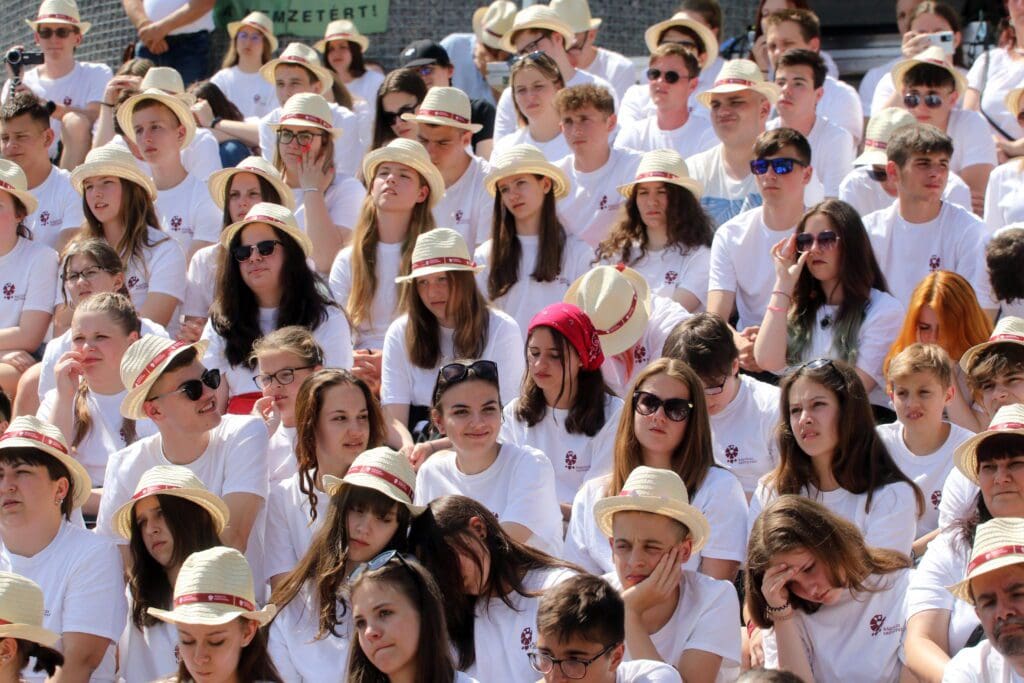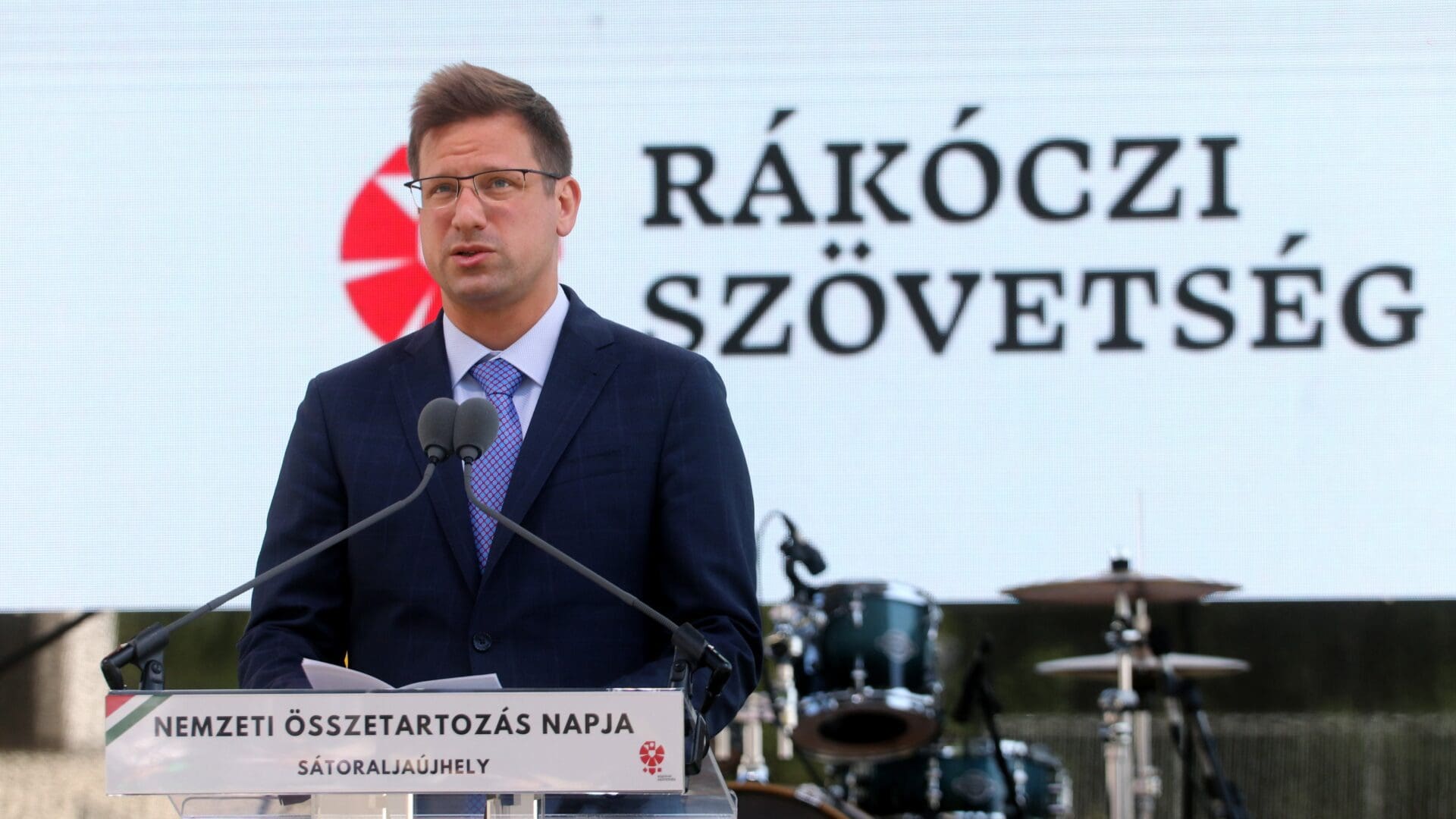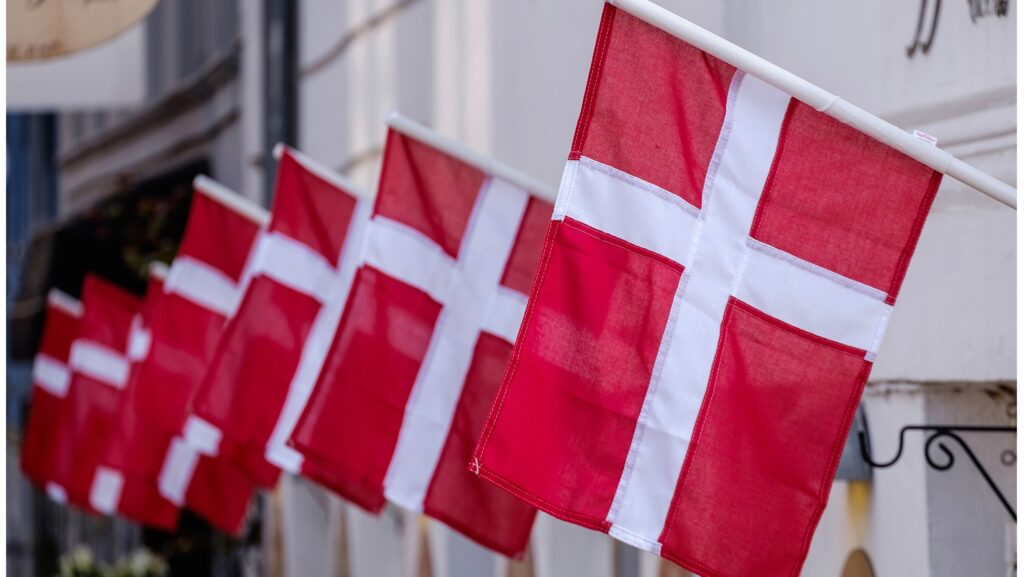This past Sunday was 4 June, the Day of National Unity, that Hungarian Conservative also commemorated with a series of articles. The day is one of national mourning but at the same time, an occasion for all Hungarians to celebrate the nation’s unity that has been preserved despite the tragedy of the Treaty of Trianon.
Beside a number of official commemorations held to honour the Day of National Unity, prime minister Viktor Orbán also took to social media and shared a popular patriotic song in a special post. He kept it short, only writing one word: ‘Összetartozunk!’, which translates as ‘we belong together’. The music shared was an interwar hit song performed by Pál Kalmár, who garnered fame for the iconic song titled Gloomy Sunday. The prime minister shared one Kalmár’s most famous songs titled You are beautiful, you are wonderful, Hungary.
Log in or sign up to view
See posts, photos and more on Facebook.
‘The foundation of national unity is that every Hungarian knows and experiences: the Hungarian state has borders, but the Hungarian nation does not!’, said the minister leading the Prime Minister’s Office on Sunday in Sátoraljaújhely during the commemoration of the Day of National Unity.
Gergely Gulyás, speaking at an event organised by the Rákóczi Alliance, emphasised that it is the task of the Hungarian state, the homeland, to ensure that every Hungarian has a home while supporting their staying and prospering in the homeland. ‘Trianon’s great lesson is that even in disunity, we must stand by each other, we must know about each other. We must know how valuable the church and the school, the scout troop and the sports club, the dance house and the theatre group, the choir and the tradition-preserving hussar association are,’ the minister stated. He pointed out that when Hungarians commemorate the mutilation of their country, they simultaneously celebrate that they are still around after 103 years.
‘Diminished but unbroken, we still live.
We live in the Partium and Transylvania, in the Southern Land and the Uplands, in Prekmurje, and amidst tremendous trials, we persevere in Transcarpathia,’ he said.

Gergely Gulyás emphasised that the past century has proven that the nation is above the state. He stated: ‘Nations are creations of God, borders are drawn by people. Supporting the homeland is important, and it has become a constitutional obligation. However, the Hungarian people have survived even when the leaders of the Hungarian state…forgot, gave up, or betrayed national unity, as it happened during the four decades of communism or during the periods of left-wing governments.’
According to the minister, successes despite Trianon are increasingly evident. ‘We have partially coped with the curses of Trianon, borders are passable again, the disintegration of families, as it existed during the period of Communist dictatorship, has come to an end. Anyone who wants to can go on vacation or study in the entire Carpathian Basin, just as our great-grandparents did in 1913.’
Gulyás drew attention to the fact that Hungarian youth needs to discover and get to know the Carpathian Basin so that they can feel at home in it. ‘Hungary is the place where Hungarians matter and where every Hungarian can rely on every Hungarian, in any corner of the world, whether it’s in Kolozsvár or Székelyudvarhely, in Ungvár or Toronto, or Cleveland.’ Gulyás said that in the past 13 years, the government has achieved a lot in terms of national policy successes, extending Hungarian citizenship to cross-border Hungarians, boosting education, talent nurturing, the economy, and creating and strengthening bonds that unify the nation. The goal has been to make it clear to everyone that every Hungarian is responsible for every Hungarian, and
Hungary bears responsibility for the fate of Hungarians living beyond the borders.
‘It is the task of the Hungarian state to open those doors, to support those initiatives through which we can preserve our mother tongue, strengthen our unity. That is why we need Hungarian kindergartens, schools, and universities, that is why we need the Mathias Corvinus Collegium, the Kőrösi Csoma Sándor Programme and scholarships, that is why we need Hungarian sports academies beyond the borders, a support system that strengthens Hungarian businesses beyond our borders, the Bálványos and Gombaszög summer camps, and the community-building work of the Rákóczi Alliance, which is essential for preserving the nation,’ Gulyás listed.
According to the minister, a hundred years after Trianon, we have proven that national unity beyond borders is not just a thing of the past, but it belongs to the future. ‘For the future to become a reality, we need the commitment of young people.’ On the occasion of the Day of National Unity, approximately 5,000 students from 193 secondary schools in the Carpathian Basin travelled to another school by crossing at least one border through the Student Travel Programme organised by the Rákóczi Alliance. The aim of the programme is for Hungarian secondary school students living in countries of the Carpathian Basin to commemorate the Day of National Unity together each year.








